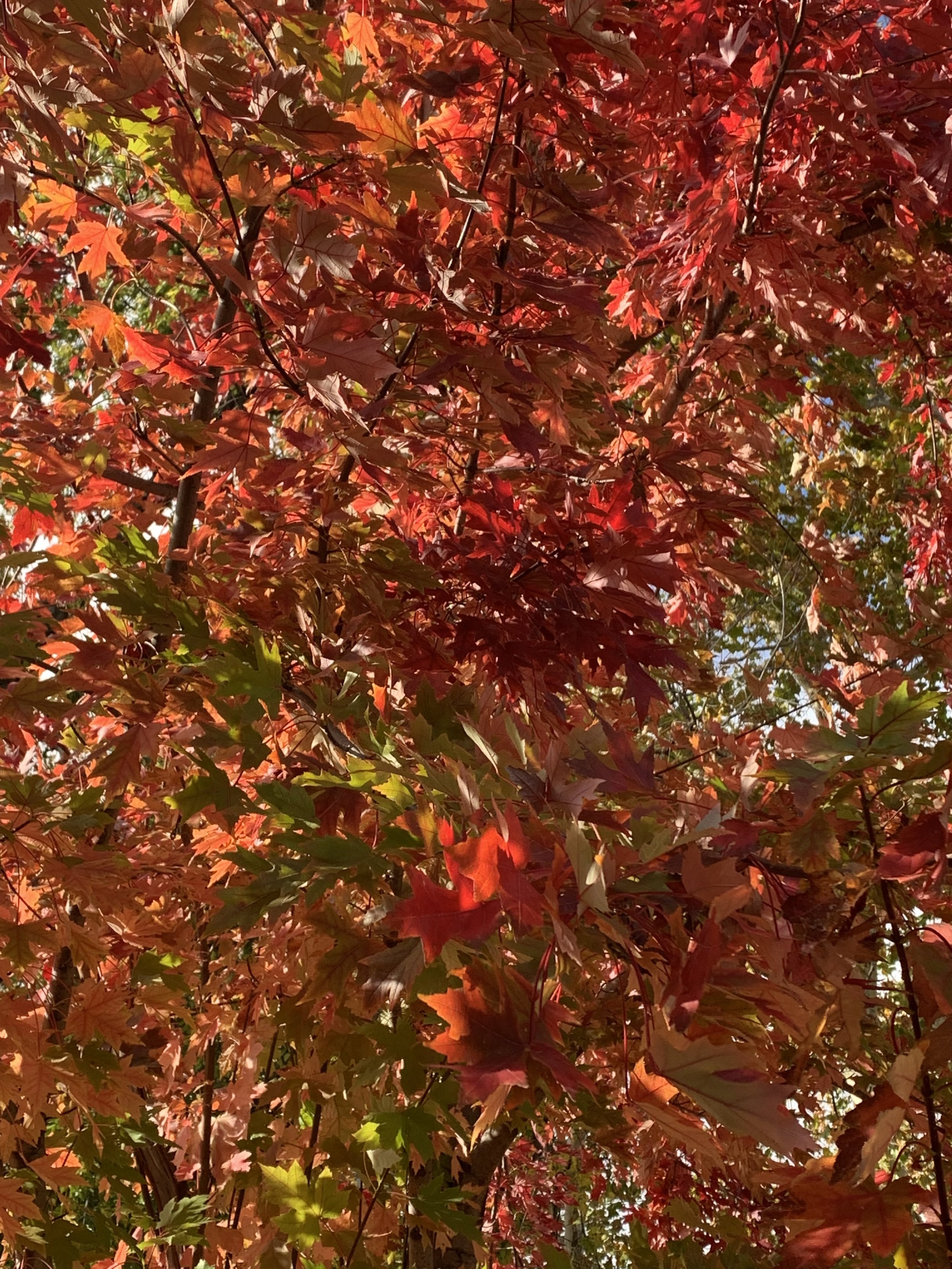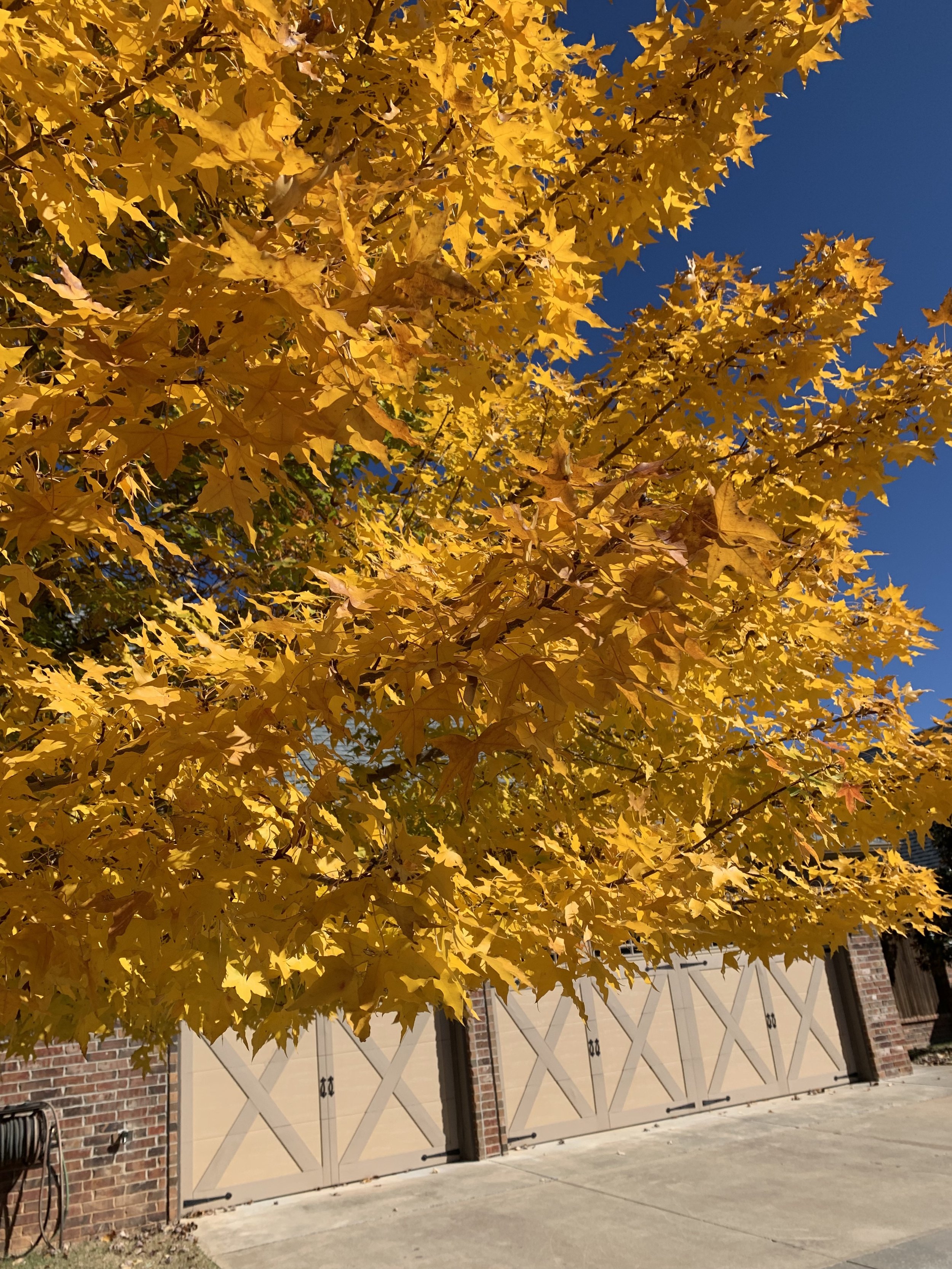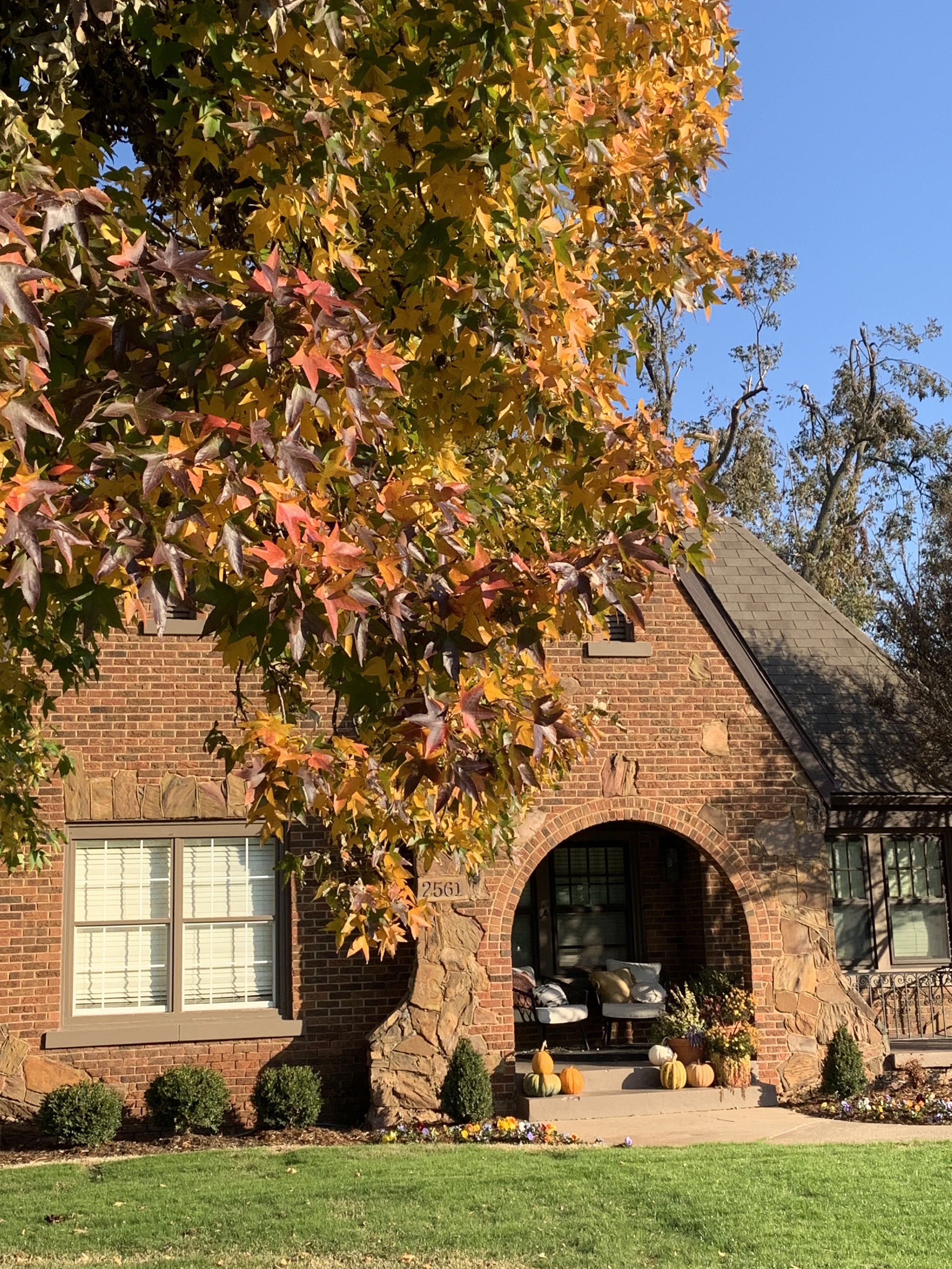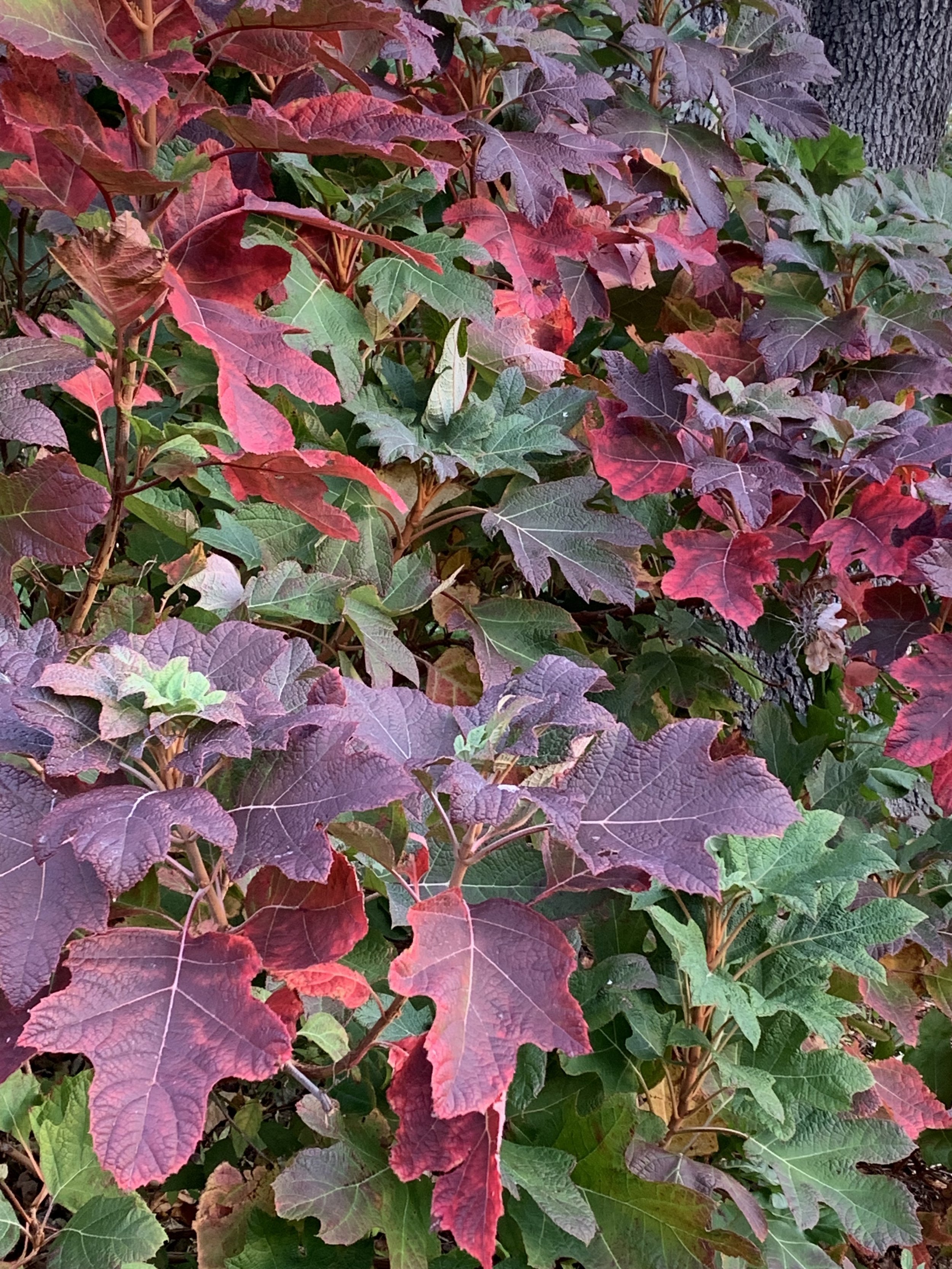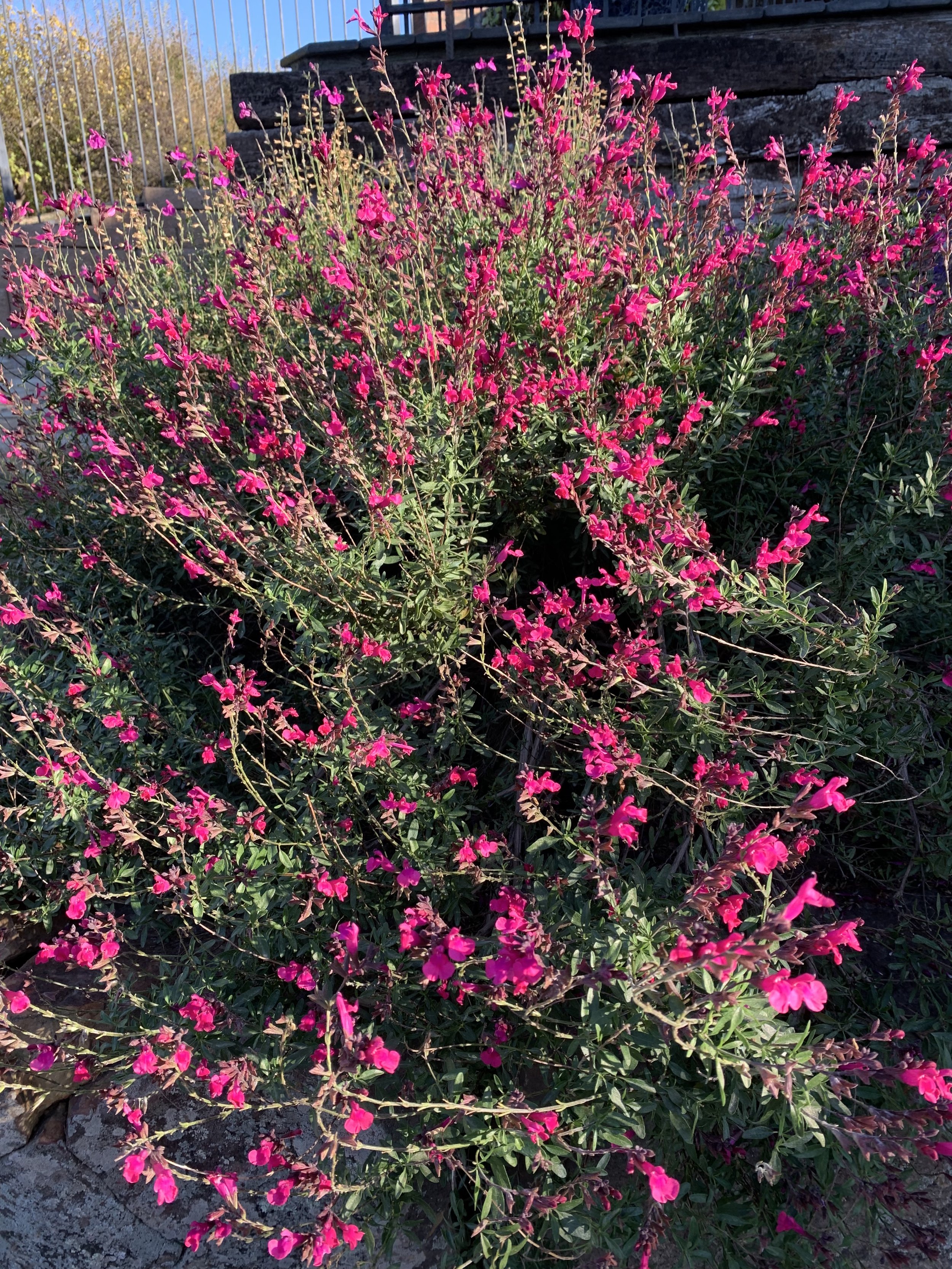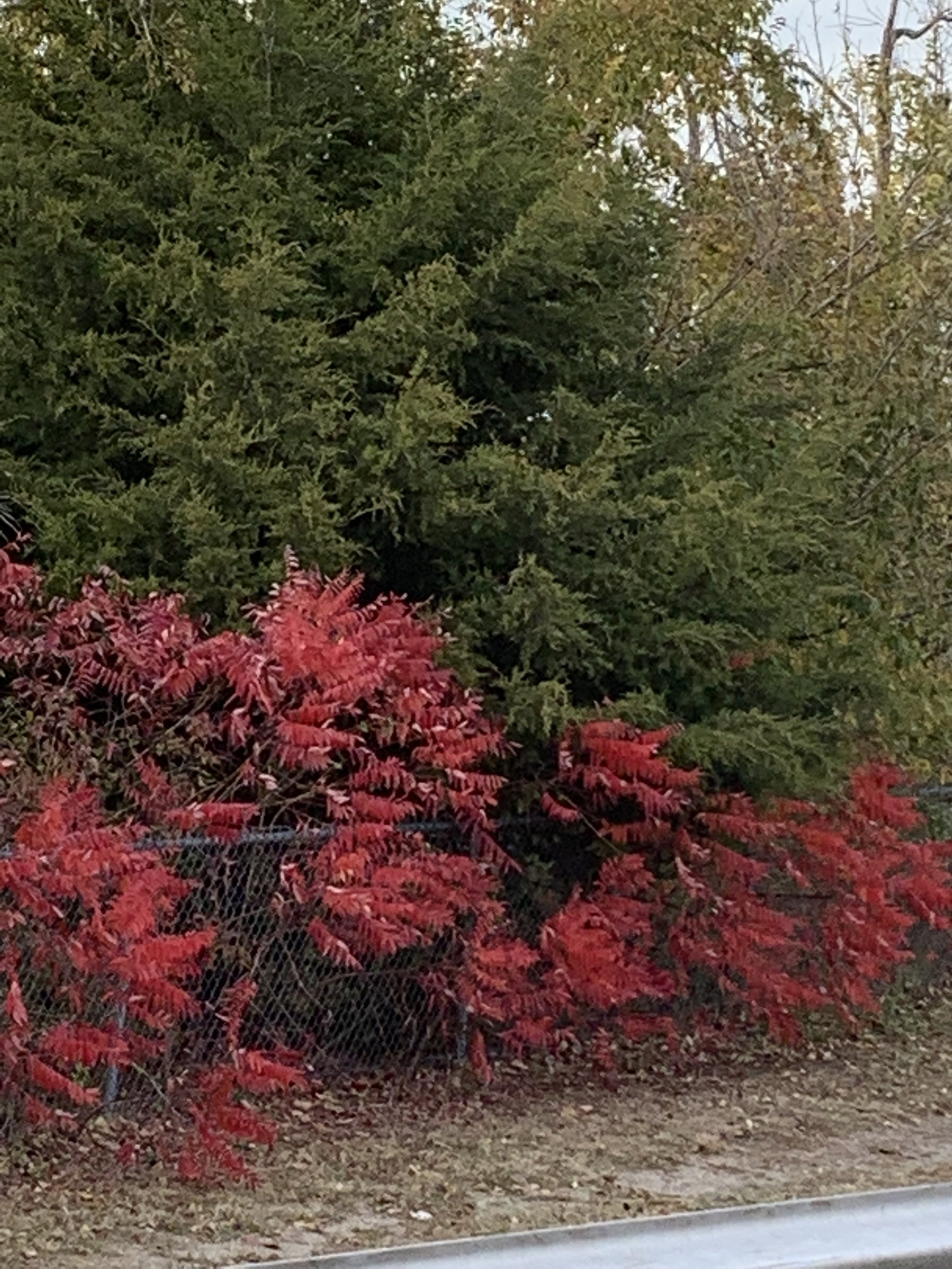Fall 2021’s Top 5 Most Colorful Landscape Plants
Four weeks ago, before trees and shrubs started their fall color change, we wrote about all the reasons we love fall.
This week is why we love fall!
The explosion of color in the Oklahoma City area this week was amazing.
Peak color is typically the last week of October continuing into the first week of November. Just like most of the landscape events of the year, peak color trended 10-14 days behind normal. I was to the point of giving up on a spectacular color show this year, but this week exceeded my expectations. Every day, every neighborhood, every corner I turned, brought another burst of fall color.
I hope you found some outdoor time this week.
I hope all the color has inspired you and your landscape dreams.
These are 5 of the most spectacular landscape plants I experienced this week:
1. Burning Bush
Also known as Winged Euonymus, it has possibly put on its best show this fall. Because it is often over pruned, it doesn’t reach its full potential. When it is left to grow to its natural shape and height, and it has received sufficient moisture through the summer, the fall color is intense and more consistent than any other plant. It is a great planted as a single specimen, in a grouping, or as a natural hedge. For smaller landscapes, plant the ‘Compactus’ variety.
Burning Bush is a great compliment to the grayish hues of the juniper.
Burning Bush looks its best when is left to grow naturally and makes a great hedge.
Burning Bush looks great on groupings or as a single specimen.
The dynamic reds of Burning Bush have be excellent this fall.
2. Chinese Pistache
No other tree produces such a vibrant, broad range of fall color. It is a dependable, pest free tree that is tolerant of a wide range of soils, drought, and heat. Considered a medium sized tree, reaching 30-35’ with an oval top.
The vibrant wide range of fall color from a Chinese Pistache is hard to beat.
Chinese Pistache is a dependable medium sized tree that is tolerate of a wide range of planting locations.
3. Maples
One of the first trees to show color in the fall. There are many varieties, these three have put on a show this fall:
Autumn Blaze – A fast grower that can reach 50-60’ with an upright, uniform branching habit. It is one of the first to turn with an excellent red color.
Autumn Blaze Maple is a fast growing tree that is one of the first to turn red each fall.
October Glory – A moderate grower that reaches 40-50’ with a rounded top. Color starts to turn a little later than the Autumn Blaze with an orange-red to red color. Of the two, October Glory is my favorite.
October Glory Maple adds orange-red to red color to the landscape just a little latter than the Autumn Blaze Maple.
Shantung – A smaller maple that is perfect for small to medium landscapes. It has a spreading, rounded canopy that only reaches 20-25’. Leaves have five points and turn a golden yellow to orange color.
Shantung Maple is a smaller tree with brilliant golden yellow to orange fall color.
4. Sweetgum
If it weren’t for the spiny, 1-1.5” seed balls that litter a lawn, this tree would be on every landscape enthusiast’s wish list. When you see a sweetgum in the fall, it immediately gets your attention because of the multicolored leaves. The star-shaped leaves turn shades of yellow, orange, red, and purple often persisting late into the fall. The tree performs well in both wet and dry soils and reaches 50-60’. The Slender Silhouette variety is a columnar shaped Sweetgum that reaches 40-50’ but is only 4’ wide. It is great for tight spaces, small gardens, and anyplace you want to create a striking vertical accent. Just like the full sized tree, it is common for there to be several rich colors on the same tree.
Sweetgum may be the most perfect tree with star-shaped dark green leaves that turn wonderful shades of yellow, orange, red, and purple lasting late into the fall. (Perfect except for those annoying spiky seed balls that litter your lawn.)
Slender Sihouette Sweetgum is columnar shaped and great for tight spaces and crest a wonderful vertical accent.
5. Oakleaf Hydrangea
One of the most underutilized, showy plants available. Known for magnificent white flowers in the early summer, but it is often overlooked for the rich burgundy color of the large, lobed leaves in the fall. It prefers moist, rich, well-drained soil and best planted in shade to partial shade.
Oakleaf Hydrangea are know for their white flowers in early summer, but with their large burgundy colored leaves also put on a great fall show.
One of the best surprises of the strange weather patterns of this year is the performance of hydrangea. Not too often do you get to enjoy the bright pinks of an Endless Summer Hydrangea nest to the yellow of a Slender Silhouette Sweetgum in November.
5.1 Pink Muhly Grass
An upright, slightly arching ornamental grass that produces a soft, airy pink to purple bloom in late September to early November. Great planted as a single specimen or as a mass planting.
We don’t think of an ornamental grass when thinking of fall color, but with the airy pink to purple fall plumes of Pink Muhly Grass, we should.
5.2 Autumn Sage
A showy perennial that adds prolific hot pink color to the fall landscape. Great for hot, sunny locations.
A great perennial for fall color is the Autumn Sage with its hot pink flowers.
5.3 Sumac
Used as a large shrub or a specimen small tree with great tolerance for dry, poor soils. Sumac has a bright red fall color. It is most commonly known for the bright red color it adds to the native landscape, but it deserves to be planted in more landscapes as an understory accent.
Sumac is a welcome sight along roadsides around the state in the fall with its splashes of red.
Sumac also adds interest to the fall landscape as an understory plant.
There are several varieties of Sumac each with their own dynamic fall color.
5.4 Crape Myrtle
Our longest blooming landscape plant is too often overlooked for the orange to red fall colors it brings to the landscape. Incorrectly, Crape Myrtle are pruned into large shrubs, and we rarely get to experience their splendor in the fall as a tree. When allowed to grow naturally, you find their addition to the fall landscape stunning.
This allee of single trunk Crape Myrtles at the Myriad Gardens is a great example of the fall color Crape Myrtles add to the landscape when we allow them grow to their natural size as trees instead of excessively pruning them every spring into large shrubs.
Oh, you noticed that was more than five? Sorry, I just couldn’t help myself.
Get out this weekend, get out this coming week, and take in the beauty of our fall landscape.
Take pictures.
Make list.
Ask questions.
And make a plan to add a plant with brilliant fall color to your landscape soon.
Lorne Hall
Hall | Stewart Lawn + Landscape
(405)367-3873









